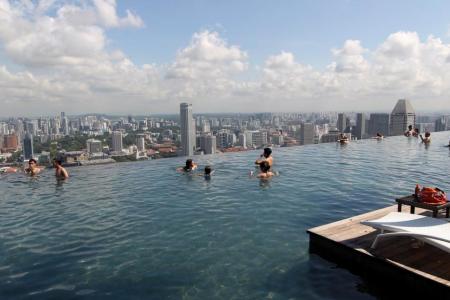PUB to study water-efficiency in swimming pool operations
Singapore has no national guidelines on keeping swimming pools water-efficient, and lacks information on how much wastage really occurs in pools across the country.
To resolve the issue, national water agency PUB called a tender on government procurement website GeBiz for a company to conduct a study into swimming pool management.The tender closed late last month.
In response to media enquiries, a PUB spokesman said that in swimming pool maintenance, most of the water used goes to topping up water levels and cleaning filters.
However, as public and private pools differ in many ways, such as their size, design, operating mechanisms and the number of users, the water agency wants to better understand how specific types of pools work.
The firm chosen is to study a total of nine public pools, condominium pools and hotel pools over about five months.
They will be divided into groups of three and their specific technical design and management practices examined.
Some of the things to be studied include the pools' capacity, the size of their balancing tanks - which keep the water level constant - and the water filtration systems.
The chosen firm must also meet groups such as engineering bodies, pool operators, trade associations and government agencies to gather feedback on issues like swimming pool designs and technological trends.
The PUB study also aims to see how much the water conservation measures currently in use, such as automatic water-level sensors and pool covers, can be applied to swimming pools across Singapore.
The spokesman said: "With such information, we can then identify good practices that can be shared with all swimming-pool owners and develop guidelines for water-efficient swimming pools."
Water expert Neal Chung from the National University of Singapore's (NUS) faculty of engineering said he supported the creation and collection of this information on a governmental level.
However, he added that there was space for the public to help.
"Other organisations which have swimming pools, such as NUS, can also monitor these things to help PUB collect data on water-efficiency and quality."
Added Professor Chung: "This way, we can learn from each other to benefit the country."
Get The New Paper on your phone with the free TNP app. Download from the Apple App Store or Google Play Store now


